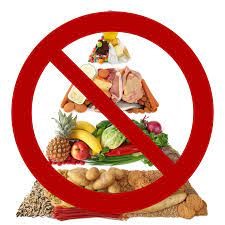
Getting to the Heart of the Matter
By Dean L. Jones
Heart disease is the number one American killer, leading cancer, chronic lower respiratory diseases, accidents (like car accidents and falls), strokes, Alzheimer’s, diabetes, influenza, pneumonia, kidney disorders and suicide, respectively. When getting to the heart of the matter of this disease it can be prevented and/or treated with making healthy lifestyle choices.
The first choice is to limit and even eliminate the consumption of added sugar in the day-to-day diet. Added sugars are sugars and syrups that are added to foods or beverages when they are processed or prepared. Items such as sugar-sweetened beverages like regular soft drinks, sugars and candy, grain-based desserts such as cakes cookies, and pies, fruit punches, dairy desserts and milk products including ice cream, sweetened yogurt, sweetened milk, and other grain-based foods such as cinnamon toast and honey-nut waffles, including table sugar, brown sugar, high-fructose corn syrup, maple syrup, honey, molasses and other caloric sweeteners in prepared and processed foods and beverages.
It is because too many Americans are continually over-eating these aforementioned items that the American Heart Association strongly recommends that women consume no more than 100 calories (6-teaspoons of sugar) a day from added sugars; and men consume no more than 150 calories (9-teaspoons of sugar) a day. Yet, still dietary change breeds skepticism that any of this knowledge bears importance to a healthy heart.
For instance, the mere mention of vegetarian, vegan, or a pescetarianism lifestyle receives a downbeat reaction from a large number of people. It seems that those who refrain from consuming sugary items are considered somewhat different. Nonetheless, following heart surgery doctors recommend a dietary lifestyle that resembles that of a vegetarian, especially advising heart patients to practice abstaining from the consumption of red meat, smoking, and sugar, which may also include abstention from by-products of animal slaughter.
Vegetarians have a 32% lower risk of coronary heart disease than non-vegetarians, due in part due to eliminating brown sugar, powdered sugar or even raw sugar as all of them are made from refined white sugar. Also, vegetarians have lower BMI, non-HDL cholesterol and blood pressure.
For the record, a pescetarian diet practices eating fish or other seafood, but not the flesh of other animals. Most pescetarians maintain a lacto-ovo vegetarian diet with the addition of fish and shellfish. Where, rarely do practitioners of western medicine advise their patients to take on a vegan lifestyle by abstaining from the use of all animal products, veganism is a growing consideration for better health due to the rising numbers of people suffering from heart related diseases.
In summary, there are dangers from eating added sugar, which by the way gets its white color from a refining process that often involves the use of bone char, meaning that it is an animal by-product. Thus, getting to the heart of the matter of disease is to live more SugarAlert!
Since 2007, Dean steadfastly shares his understanding on the dangers of eating processed sugar. t 2;\lsdpriorit


